Current Affairs
China weighs options to blunt U.S. sanctions in a Taiwan conflict

BEIJING, Oct 20 – In a war with the U.S. over Taiwan, China would need to create a global network of companies under U.S. sanctions, seize American assets within its borders, and issue gold-denominated bonds, according to Chinese government-affiliated researchers studying the Western response to Russia after its invasion of Ukraine.
The sanctions against Moscow have prompted hundreds of Chinese economists, financiers, and geopolitical analysts to examine how China should mitigate extreme scenarios, including loss of access to U.S. dollars, according to a Reuters review of more than 200 Chinese-language policy papers and academic articles published since February 2022.
“In the context of intensified Sino-U.S. strategic competition and the Taiwan Strait conflict, we should be wary of the U.S. replicating this financial sanction model against China,” wrote Chen Hongxiang, a researcher at a branch of the People’s Bank of China (PBOC) in eastern Jiangsu province.
China, he said, should “prepare for a rainy day” to ensure its financial and economic stability.
The specificity of the scenarios and potential countermeasures are being reported for the first time by Reuters.
But discussions about U.S. sanctions, including from researchers within China’s foreign and financial policy establishment, surged 50% in the 12 months following the start of the war in Ukraine compared with the corresponding period a year earlier, according to a review of China National Knowledge Infrastructure, the country’s largest database of academic literature.
“Analysing various possible scenarios and coming up with China’s prevention, response and countermeasures are undoubtedly a top priority for China’s policymakers,” Yu Yongding, an economist and former central bank adviser, wrote in a journal article in July 2022.
Reuters contacted all the researchers named in this story directly or through their institutions but most declined to comment or did not respond. Yu referred Reuters to an op-ed he wrote on decoupling.
The PBOC said in a statement that the research papers written by its employees represent their personal views. The central bank did not address questions about its sanctions planning.
China’s State Council Information Office did not respond to queries about Beijing’s contingency planning.
LOOKING TO MOSCOW
The freezing of more than $300 billion in Russian central bank foreign currency assets and the removal of Russian banks from the SWIFT interbank payments system last year have particularly worried Chinese experts, given China’s more than $3 trillion in foreign exchange reserves and its export-dependent economy.
“The risk that China’s overseas reserve assets may be frozen seems more imminent,” wrote Wang Yongli, general manager of China International Futures, one of the country’s largest commodities and financial futures brokerage businesses.
Wang and several PBOC researchers wrote in articles that if the U.S. implemented Russia-style sanctions on China, Beijing should freeze U.S. investment and pension funds and seize the assets of U.S. companies. The papers did not name individual companies as potential targets.
Researchers have also formulated unconventional solutions to China’s dependence on the U.S. dollar, partly inspired by Moscow’s policies.
The Beijing-based China Center for International Economic Exchanges (CCIEE), which counts former commerce ministers among its leaders, published several analyses on lessons China should learn from Russia.
Sun Xiaotao, a CCIEE researcher, published an article in February that argues China should push for more gold-denominated trade to prevent major fluctuations of the yuan – echoing the Russian central bank’s decision to increase its gold reserves by one million ounces since the Ukraine war began.
Reuters could not determine the extent to which the think tanks influence China’s decision-making, but they are known to brief and write reports for leading officials.
Some of China’s policies align with the papers’ recommendations. Central bank data earlier in October showed the PBOC increased its official gold reserves for the 11th consecutive month.
ENERGY AND ALLIANCES
Besides financial sanctions, Russia’s response to Western pressure on its oil, gas, metals, and chips industry has given food for thought to Chinese researchers.
Mou Lingzhi, an academic at the Shanghai Academy of Social Sciences, wrote in January that Russia’s demand that its natural gas be paid for in roubles should spur China to accelerate the promotion of yuan pricing of commodities such as lithium, which is crucial for electric vehicle batteries.
Central bank researchers have echoed the point, with one from a PBOC branch in the island province of Hainan, Xia Fan, writing last November that China should “accelerate the process of international energy settlement” in yuan to weaken the dollar’s dominance in the oil market.
Researchers at China Minmetals Corporation, one of the country’s top miners, wrote in June that emergency plans to guarantee supplies of iron, copper, nickel, and other strategic metals were needed, noting that Russian nickel products were suspended from the London Metals Exchange as a consequence of the war in Ukraine.
Other researchers called for a new economic grouping that could protect China in a sanctions tit-for-tat.
Ye Yan, an economist at China National Oil and Gas Exploration and Development Company, wrote in January that the cheaper Russian oil China has enjoyed as a result of Western sanctions had created a model for a future “anti-sanctions corporate network” that would allow member countries to trade discounted goods.
Chinese researchers also suggested Beijing exploit cracks within the European Union and between the U.S. and its allies. One foreign analyst said there could be a lack of unity in the West.
“Achieving broad international consensus for a sanctions coalition on China would be orders of magnitude harder than for Russia due to the much larger volume of investments there and reliance on its market,” said Martin Chorzempa, a senior fellow at the Peterson Institute for International Economics in Washington.
SEEKING SOLUTIONS
Some analysts have highlighted the limits of yuan internationalisation, arguing instead that China should blunt sanctions by increasing its economic links with the U.S. and its allies.
Yu, the former PBOC adviser, wrote in his 2022 paper that it was unlikely the U.S. would seize trillions of dollars or refuse to pay the principal and interest on Treasury bills China holds.
“Due to the close economic and financial ties between China and the United States, the United States will not do something like ‘kill a thousand enemies and injure eight hundred of its own,’” Yu wrote.
Wang, the China International Futures official, made a similar argument last year, noting that gold was not a practical replacement of dollar reserves because of the costs and risks associated with the transport and storage of large quantities of the metal.
In light of these issues, many of the researchers suggest Beijing further open domestic financial markets to tie the interests of the U.S., its allies, as well as companies from these countries with China, increasing the costs of sanctions.
Partly in response to this, the EU and U.S. have sought to derisk and diversify supply chains and on-shore production of chips. But these policies would take time to bear fruit, Chorzempa said.
“China’s much more pronounced role in global value chains would also give it more opportunities for circumvention (of sanctions), and its ability to substitute foreign technology for indigenous production is far stronger than Russia’s”, he said.
Chen, the PBOC researcher, considered the “nuclear” option of China’s excision from SWIFT and concluded that increasing cooperation with the U.S. was the best way to shield China.
“The mutual penetration of the Chinese and American economies will inevitably weaken the willingness to impose financial sanctions,” he wrote.
©Reuters
Current Affairs
New survey points to coalition-led SA, but voter apathy a major factor
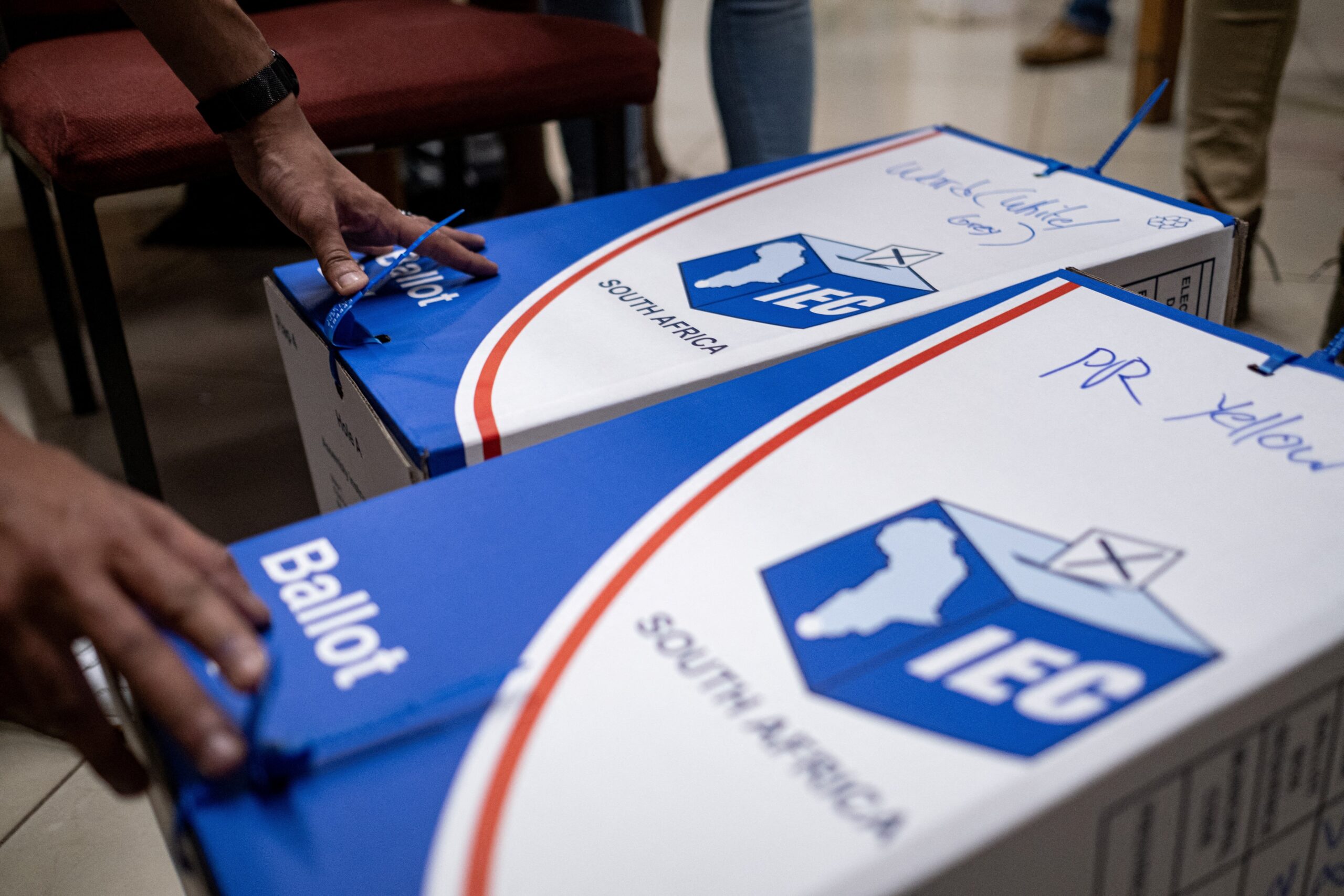
The results of an in-depth survey conducted by African Innovation Research SA (AIRSA) point to the country’s future being in the hands of coalitions and raise concerns about voter apathy, especially among the youth.
The initial sample comprised some 5 000 participants, of whom 46% confirmed they were either not interested in voting despite being registered or had not registered.
The majority of those surveyed by the independent research company based in Cape Town were in the 18–35 age group, a generation who are increasingly disillusioned with how the country is run.
The remaining 2 700 participants, who were interviewed from across a broad section of South Africa’s nine provinces, indicated that support for the ruling ANC is in decline, dipping below the 50% mark to 43% overall.
The ANC’s strongholds remain the Eastern Cape (61% of those surveyed), 58% in the Free State and 65% in Limpopo, where its challenger is the EFF at 23.7%.
In the country’s fourth-largest economy, Mpumalanga, the ANC leads with 52.3%, the EFF at 21.7% and the DA at 19.7%.
In the North West province, it’s a similar pattern, albeit reversed, with the ANC at 48.3%, the DA at 27.7% and the EFF at 20.0%, while in the Northern Cape, the ANC leads with 47.3%, followed by the DA with 24.3% and the EFF with 15.7%.
The country’s economic engine, Gauteng, is a key player in the power dynamics. Here, the ANC garnered 38.7%, but the EFF is growing its base to 19.3%, challenging the DA’s 20% of the province’s voters.
In the Western Cape, as expected, the DA holds onto a leading margin at 46.0%, with the ANC and EFF at 22.3% and 8.7% respectively. Gayton McKenzie’s Patriotic Alliance (PA) also features in the country’s southernmost province, making a notable showing at 5%.
While former president Jacob Zuma may have been barred from becoming a member of Parliament in the Constitutional Court this week, the new uMkhonto weSizwe Party (MKP) will play a pivotal role in KwaZulu-Natal. Results of the AIRSA survey show that while the ANC currently remains ahead with 28.7%, it’s an even race in the province with similar support for the IFP at 26.0% and MKP at 26.7%.
As experience dictates, the smaller parties will begin a series of bargaining tactics as to whose deck they end up in and call the shots.
At collectively accounting for around 20% of the upcoming vote, these potential coalition partners carry significant influence.
AIRSA also noted that voting in this sector is personality-driven as opposed to ideology.
The fragmentation of South Africa’s political landscape could also contribute to increasing dissatisfaction and disillusionment, particularly when linked to the country’s youth and increasing unemployment.
© IOL (Cape Times)
Current Affairs
Diddy assault video cements fall of hip-hop icon
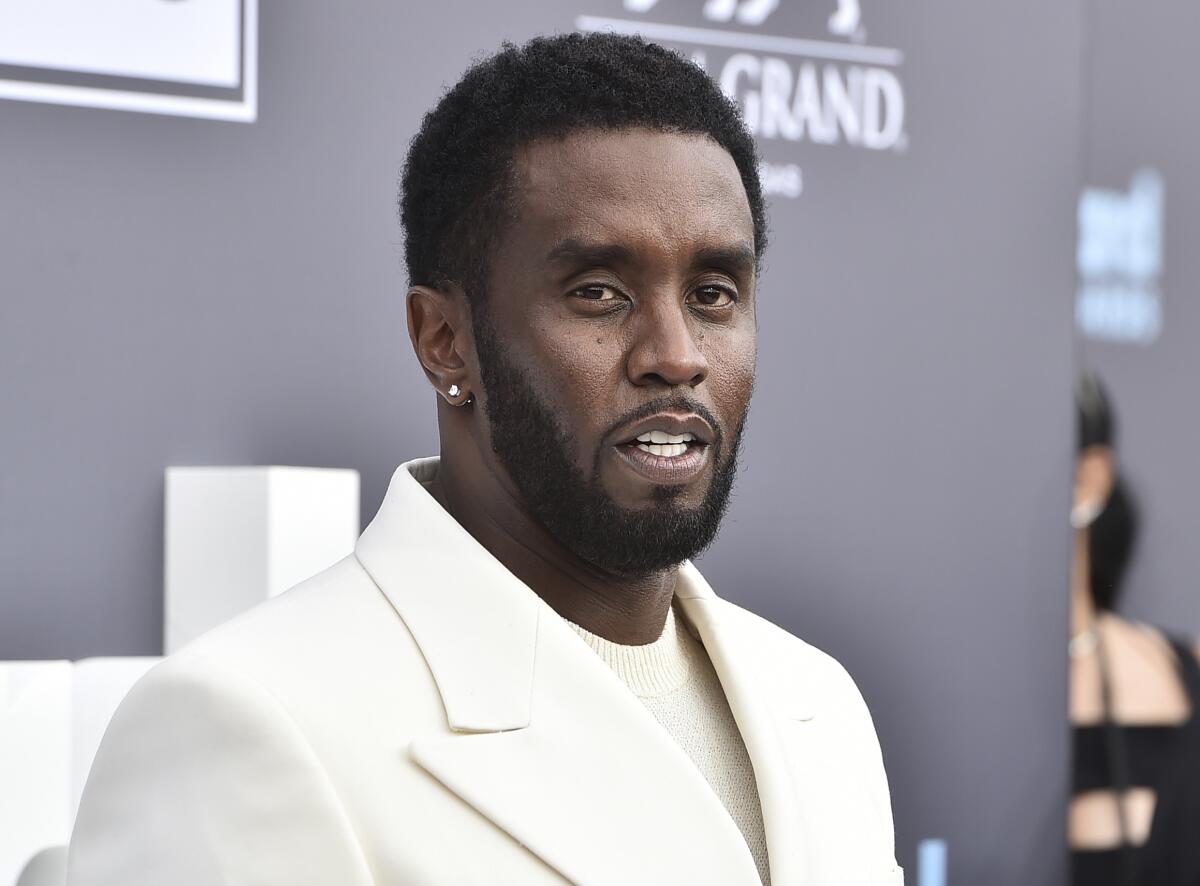
CCTV video footage confirmed what many people in the music industry knew was brewing: a moment of reckoning for one of the most influential hip-hop artists in history.
The clips of Sean “Diddy” Combs kicking his former girlfriend Cassie Ventura – as she lay motionless on the floor – cemented his downfall, despite his apology after the leak.
“I don’t see a path for him to come back from this,” said Amy DuBois Barnett, the former editor-in-chief of Ebony magazine, who has written about hip-hop culture.
Combs’ reputation in the industry had been “chequered for some time,” added Barnett. “Many people were aware of his pretty unbridled temper.”
Combs – formerly known as P Diddy, Puff Daddy or Puffy – is one of the best-selling and most acclaimed artists of all time, with three Grammy Awards and millions of record sales to his name.
For years, nothing really affected his rise to icon status as an artist, producer and businessman. There were negative stories in the industry, said Barnett, but much of it stayed out of the public eye.
Last November, Ms Ventura settled a lawsuit against Combs – in which she accused him of rape and sexual trafficking – for an undisclosed sum. But Combs’ lawyer said the settlement was “in no way an admission of wrongdoing”.
Celebrities continued to voice support for him, but that ended with the CCTV video obtained by CNN and published last week.
The assault shown in the footage is brutal. After kicking Ms Ventura like a football, Combs, wearing just a towel, is seen dragging her across the floor.
The video appears to be a compilation of surveillance footage angles dated 5 March 2016, which CNN said was filmed at the InterContinental Hotel in Century City, Los Angeles. In her lawsuit, Ms Ventura had described a March 2016 incident at that hotel, in which Combs allegedly attacked her.
A string of other lawsuits have since been brought against Combs for abuse, sexual misconduct and rape. The latest was filed on Tuesday by Crystal McKinney, a former model and winner of MTV’s 1998 Model Mission competition.
She claimed she was “drugged and sexually assaulted” in 2003 by Combs following a fashion event in New York. BBC News has contacted Diddy’s representatives for comment on the claims.
When the first lawsuits were filed, the rapper called the accusations “sickening” and said the alleged victims were looking for “a quick pay day”.
But the video of the assault on Ms Ventura undermined those denials.
Combs was silent for two days after its release, before posting an apology to Instagram, admitting it was him in the tape and calling his actions “inexcusable”.
“I was disgusted then when I did it,” he said, “and I’m disgusted now.”
“I went and I sought out professional help,” he continued. “I got into going to therapy, going to rehab. I had to ask God for his mercy and grace. I’m so sorry.”
Combs did not mention Cassie Ventura in his apology, and her lawyers hit back, saying: “Combs’ recent statement is more about himself than the many people he has hurt.”
The apology was “too little too late,” said Camron Dowlatshahi, an entertainment lawyer in Los Angeles. “It shows the short-sightedness of Diddy, thinking he’s not going to be held accountable and that he has enough money to take care of everything.
Barnett, who has written about misogyny in the rap industry, described the statement as “the most ill-advised apology ever”. She suggested it was from the “classic ‘famous man’ playbook: deny, deny, deny. Get caught. Apologise, then talk about going to therapy.”
“No-one’s taking it seriously, particularly because he previously accused Cassie and others of being gold-diggers. That really angered a lot of people in the music industry.”
In April, news helicopters on both the US east and west coasts filmed police raids on mansions linked to the rapper. They were part of an ongoing criminal investigation by law enforcement into sex trafficking.
The man who was idolised as a hip-hop legend has been lying low since then.
Family pictures with his daughters posted to Combs’ Instagram account are in stark contrast to the images of him carrying out a violent assault.
The Los Angeles District Attorney’s Office said on Friday that it would not be able to bring charges due to the statute of limitations for assault. So where does the CCTV video, and the ongoing investigation, leave his career?
In his music, Diddy has often relied on collaborations with other A-list stars. His last album featured Mary J Blige, The Weekend, 21 Savage, and John Legend. He is extremely unlikely to be able to recreate such productions now.
But whether there will be an effect on his vast number of listeners is less clear. Fitness company Peloton has banned his music from its workout playlists already, according to TMZ, but other companies are yet to comment.
R Kelly continues to get millions of monthly listeners on Spotify, despite convictions for child sexual abuse.
Meanwhile, Kanye West experienced a peak in his monthly listeners last year, despite being dropped by brands for expressing antisemitic views.
Those who passed by Diddy’s star on the Hollywood Walk of Fame this week reflected on what the video meant to the rapper’s fans.
“It’s career-ending. I don’t know how he’s going to come back from this,” said Mar Anthony, a Los Angeles local. “I was a fan when I was a kid, listening to Every Breath You Take (I’ll Be Missing You). But what he did and the music, they’re two different things.
“It’s the same thing with Michael Jackson,” he said, nodding towards another Walk of Fame star that lies not far away – in an apparent reference to allegations of child abuse made against that star.
Diddy “definitely deserves what is coming to him”, said Prince Laurenz Hamlin, who was visiting LA. “But he still has built a legacy in the music industry. I think people will have to separate the art from the artist.”
One woman, after snapping a photo of Combs’ star, simply muttered “predator” as she walked away.
It is unclear who is currently advising Sean Combs. The law firm that previously issued denials on his behalf has said it no longer represents him.
Despite the civil lawsuits there have been no criminal charges filed against him. But the ongoing police investigation will no doubt be weighing heavily on the rapper.
“The Department of Homeland Security was involved [in the raids],” said Mr Dowlatshahi. “Just that fact alone shows the severity of what’s going on here.”
© BBC News
Current Affairs
Iran’s supreme leader leads prayers at Raisi funeral
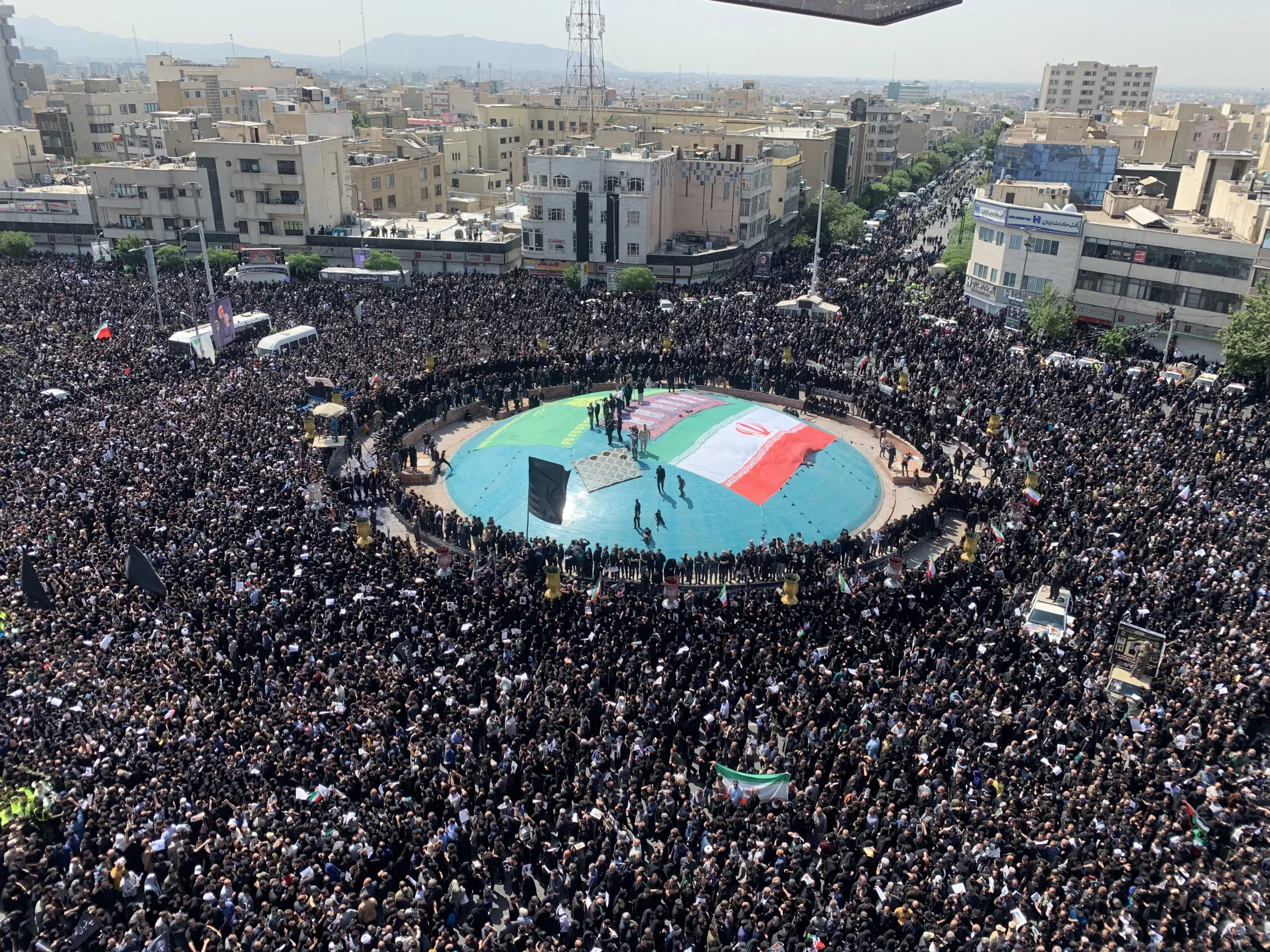
Iran’s supreme leader has presided over a funeral for the country’s late president, foreign minister and others killed in a helicopter crash on Sunday.
Ayatollah Ali Khamenei led prayers at Tehran University, where caskets carrying the dead were draped in Iranian flags.
President Ebrahim Raisi died alongside Foreign Minister Hossein Amir-Abdollahian and six others in a helicopter crash near the border with Azerbaijan.
Authorities had warned against demonstrations against the funeral procession and insults posted online.
“Oh Allah, we didn’t see anything but good from him,” Ayatollah Khamenei said in the standard prayer for the dead in Arabic.
Iran’s acting president, Mohammad Mokhber, stood nearby and openly wept during the service.
People then carried the coffins out on their shoulders, with chants of “Death to America” heard outside.
They loaded them onto a trailer for a procession through downtown Tehran to Azadi Square, where Raisi gave speeches in the past.
In attendance were top leaders of Iran’s paramilitary Revolutionary Guard, one of the country’s major power centres.
Also on hand was Ismail Haniyeh of Hamas, the militant group that Iran has armed and supported during the ongoing Israel-Hamas war.
Haniyeh is widely considered Hamas’s overall leader and has been a prominent member of the movement since 1980. The US Department of State designated him a terrorist in 2018.
“I come in the name of the Palestinian people, in the name of the resistance factions of Gaza…to express our condolences,” Haniyeh said.
He also described meeting Raisi in Tehran during Ramadan, the holy Muslim fasting month.
He said he heard the president say that “the Palestinian issue” remains the key one of the Muslim world, which “must fulfil their obligations to the Palestinians to liberate their land”.
He also claimed that Raisi called Hamas’ October 7 attack in Israel, which saw 1,200 people killed and 250 others taken hostage, an “earthquake in the heart of the Zionist entity”.
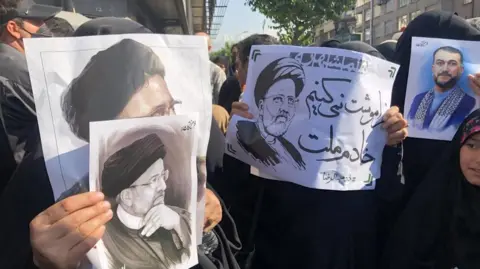
Also expected to attend services in Tehran were Pakistan’s Prime Minister Shehbaz Sharif and a delegation from the Taliban of Afghanistan, which included their Foreign Minister Amir Khan Mutaqqi.
Iran’s theocracy declared five days of mourning over Sunday’s crash, encouraging people to attend the public mourning sessions.
Typically, government employees and schoolchildren attend such events en masse, while others take part out of patriotism, curiosity or to witness historic events.
For Iran’s Shiite theocracy, mass demonstrations have been crucial to demonstrating the legitimacy of their leadership since millions thronged the streets of Tehran to welcome Grand Ayatollah Ruhollah Khomeini in 1979 during the Islamic Revolution, and also attended his funeral 10 years later.
An estimated one million turned out in 2020 for processions for the late Revolutionary Guard General Qasem Soleimani, who was killed in a US drone strike in Baghdad.
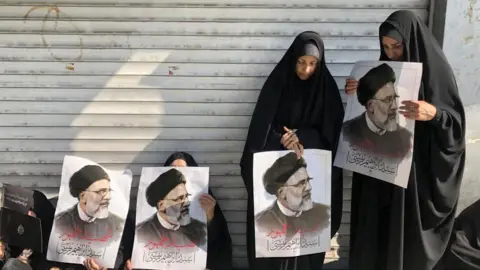
Across the capital, large banners were raised hailing Raisi as “the martyr of service”, while others bade “farewell to the servant of the disadvantaged”.
Some residents in Tehran received texts urging them to attend Wednesday’s ceremonies, the AFP news agency reported.
Footage carried by state TV showed streets filled with mourners, many of whom were carrying pictures of Raisi or the Iranian flag.
Funeral rites for the men began on Tuesday in the city of Tabriz and the Shiite clerical centre of Qom, where thousands of mourners attended ceremonies.
After Wednesday’s procession in the capital, Raisi’s remains will be moved to South Khorasan province, before being transferred to his home city of Mashhad in the northeast.
He will then be buried on Thursday evening in the city after funeral rites at the Imam Reza shrine.
Raisi, a hardline cleric, was a highly divisive figure in Iran. In the 1980s, he oversaw the execution of scores of opposition activists while working as a prosecutor.
He unleashed a brutal crackdown against demonstrators angered by the killing of 22-year-old Mahsa Amini in 2022. She died three days after she was detained by morality police in the capital for allegedly violating Iran’s strict rules requiring women to cover their hair with a hijab, or headscarf.
But his ultra-conservative outlook won favour with supporters of the regime, and Raisi was viewed as a possible successor to Ayatollah Khamenei.
© BBC News
Current Affairs
Shoprite to cooperate with police after Heidelberg man dies following alleged confinement in store cold room
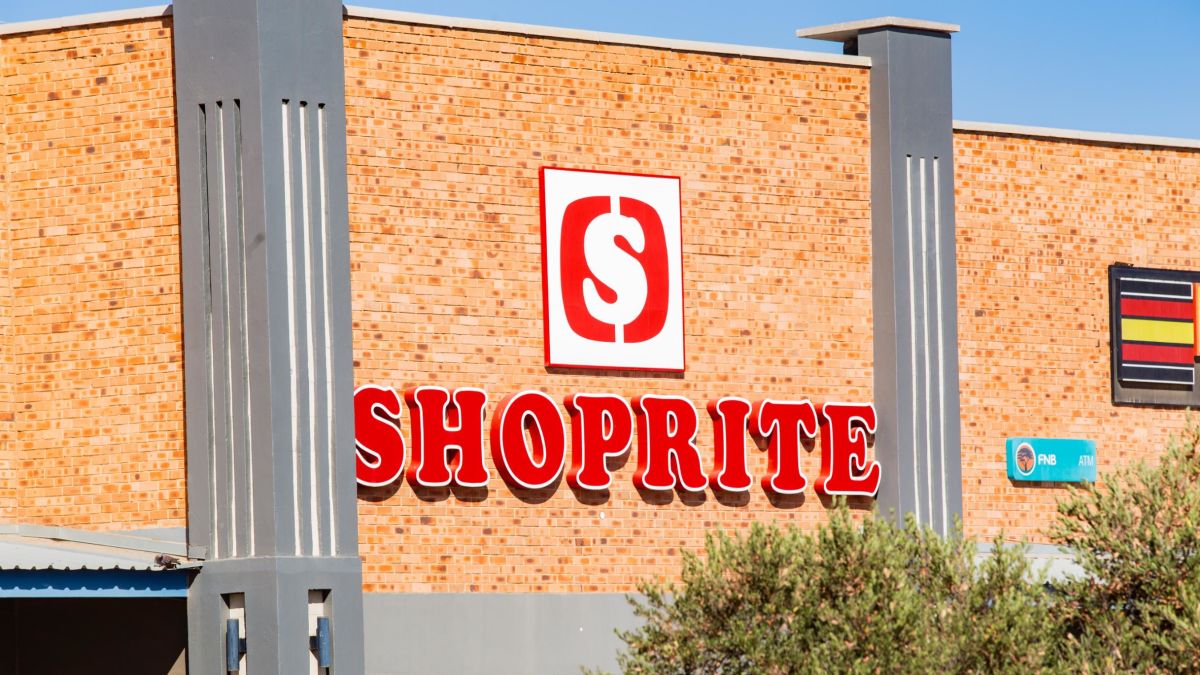
Without divulging any details regarding the allegations over the death of a Gauteng man, retailer Shoprite stated that they would cooperate with the South African Police Services (SAPS).
IOL initially reported that a 13-year-old boy who was accused of stealing a chocolate, had been locked in a cold store room, where he subsequently died.
However police have clarified that the victim is 33-years-old.
Gauteng police spokesperson Colonel Noxolo Kweza said Ratanda police have opened a case of assault common as well as an inquest docket.
“This follows an alleged incident where two men accused of shoplifting were locked at the back of the store.
“One of the men, aged 33, during closing time complained of stomach aches, paramedics were called and he was declared dead on the scene.”
It is alleged a 33-year-old man was accused of stealing a bar of chocolate from a Shoprite store in Ratanda in Heidelberg, south of Gauteng.
When approached for comment, the supermarket chain extended its condolences to the victim’s family following their loss.
“The allegations are seen in an extremely serious light and the necessary steps will be taken pending the outcome of a full investigation.
“We cannot comment on the details of the incident as it is a police matter, and the local South African Police Service (SAPS) should be contacted for more information.
“We always give our full cooperation and provide all available information to the SAPS to assist their investigation.”
On Monday, angry community members gathered outside the store demanding answers.
© IOL




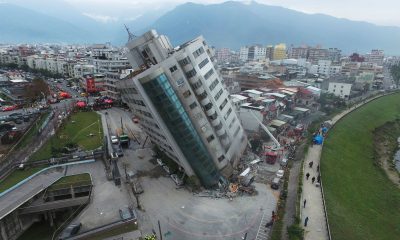

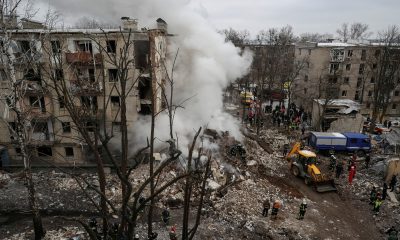



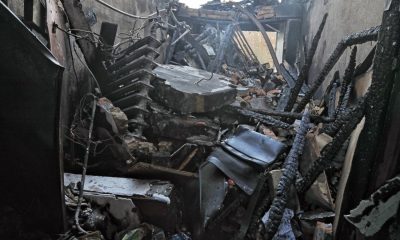








You must be logged in to post a comment Login